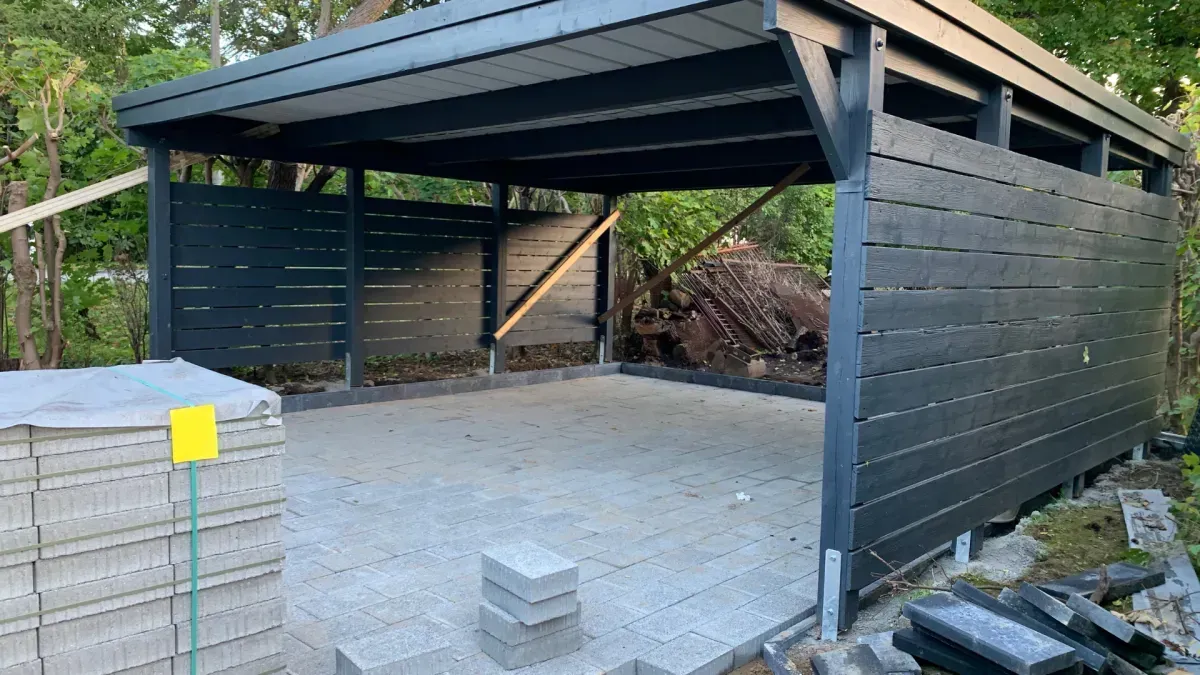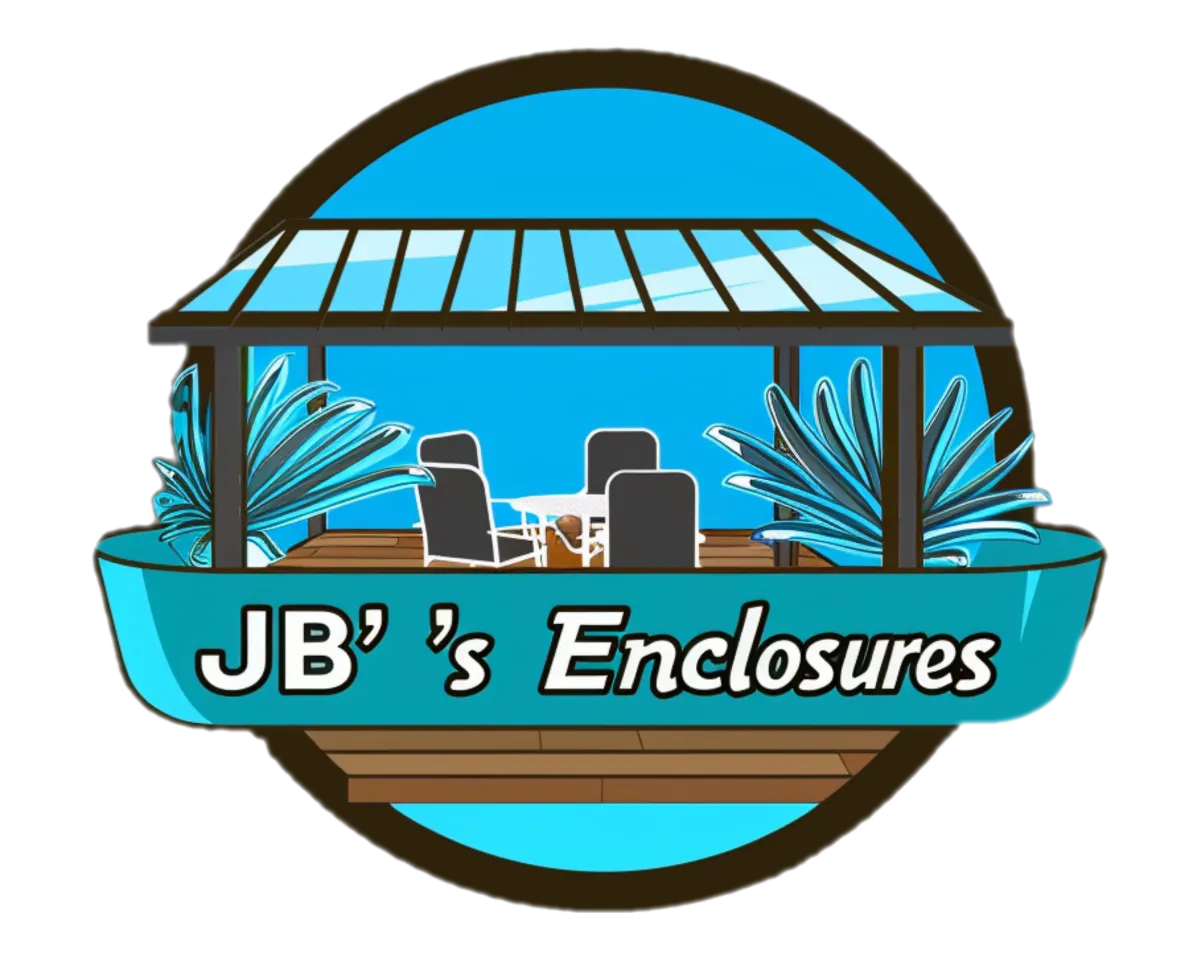Blogs

How to Ensure a Seamless Carport Installation in Tennessee
Thinking about getting a carport? Smart move. Keeps your car safe. Adds value. Makes life easier, honestly. No running through rain or sitting on burning-hot seats in summer. Just protection that looks clean and feels right.
But here’s the truth—carport installation isn’t always simple. It’s not just posts and panels. It’s planning, precision, and good hands that know what they’re doing. That’s where JB's Enclosures comes in.
These guys? They’re pros. Like, real pros. They’ve been building carports and outdoor structures all over Tennessee for years. Every project—measured right, designed right, and built solid. They care about the small stuff—the way it looks, how it lines up, how it fits your home. No rushing. No sloppy work. Just clean, strong builds that last.
That’s why people trust JB’s Enclosures. Because when they say seamless, they mean it. Every bolt, every joint, every finish—it just fits. Perfectly.
Key Takeaways
Know every step of a carport installation—from dirt to done.
Learn how to choose solid, honest metal carport builders.
Understand what makes RV carport installation different (and trickier).
Avoid mistakes that cost time, money, and sanity.
Keep your investment looking and performing great for years.
Why a Carport Is More Than Just Shade
Real Protection. Real Value.
People think carports are just covers. Nah. They’re a serious upgrade. You’re adding protection, resale value, and a little peace of mind.
Your car stays cleaner. Paint lasts longer. No frying seats in July. No scraping frost in January. And hey—it doubles as a shaded hangout, a workshop, or even storage.
Tennessee homeowners know the weather’s unpredictable. One week sunny. Next, hail. That’s why a solid carport installation pays off.
Different Kinds for Different Needs
Let’s break it down:
Freestanding carports – independent, flexible, easy to place anywhere.
Attached carports – connect to your house or garage for a seamless look.
RV carport installation – taller, heavier-duty builds for big rigs.
Custom setups – combine storage, panels, and even solar if you want.
And that’s why the builder matters. Skilled metal carport builders don’t just “install.” They engineer. They plan for your space, slope, drainage, and even aesthetics.
Before You Build: Plan Like a Pro
A smooth install starts way before the first post hits the ground. You’ve got to plan smart.
Check Your Site
Look around. Measure your vehicle. Then measure again.
Check for slope, drainage, trees, or overhead wires. Is the ground level? Is water going to pool up where you park? These little details decide how your carport installation holds up five years down the road.
Permits & Local Rules (Don’t Skip This)
Yeah, paperwork. No one loves it. But skipping it? Pain later.
Most Tennessee counties require a permit for permanent carports—especially if it’s anchored to concrete or a structure. You’ll need:
Property line setbacks (usually 5–10 feet)
Wind/snow load data
HOA approvals (if you’re in one)
Pro tip: a good builder handles all that for you. Saves you a ton of hassle.
Design & Materials
Here’s where your choices really count.
Steel gauge: Go thicker (12-gauge) if you want it strong.
Roof type: Vertical or A-frame looks cleaner, lasts longer.
Finish: Powder-coated steel fights rust.
Add-ons: Side panels, gutters, enclosed bays, you name it.
And think about aesthetics too. A carport that matches your home’s roofline or color looks intentional, not like an afterthought.
Pick the Right Crew
Don’t just Google and pick the cheapest name.
Ask for certifications, photos of past jobs, and actual client feedback. Good metal carport builders in Tennessee are proud of their work. They’ll show it.

The Real Carport Installation Process
This is what actually happens when the crew rolls up.
Site Prep
They’ll clear debris, brush, and maybe dig a little. The surface must be level. Compact soil, pour a concrete pad or use anchors. That pad? It’s your foundation—don’t cheap out here.
Framing & Anchoring
The frame goes up next. Columns first, then roof trusses, side braces, and purlins. Everything gets squared, tightened, and plumbed.
Tiny misalignments early can turn into roof leaks later. Experienced installers know how to tweak as they go.
Roofing Panels
This is where it starts looking real. Roof panels go up—secured, overlapped, sealed. Flashing, trim, ridge caps, gutters. It’s precision work, especially if you’re doing a vertical roof system.
Final Checks
Anchors torqued. Bolts tightened. Alignment verified. Then? A full walk-around inspection.
Good crews clean up. Tighten what’s loose. Check everything twice.
For the Big Toys – RV Carport Installation
Different beast. Taller posts, heavier steel, deeper anchors.
Why? Bigger surface area = bigger wind load. That means stronger everything—frame, bolts, foundation.
You’ll want sidewalls or gables to block sideways rain and UV. And clearance—don’t guess, measure your RV’s A/C height to the inch.
Avoid These Common Mistakes
Let’s be honest. Most bad installs come from skipping basics.
Weak Foundations
If your ground shifts, your structure moves. That’s not good.
Always check the soil. Sandy or soft ground? Use deeper piers or reinforced pads.
Poor Drainage
Water is sneaky. It’ll find any dip or crack. Make sure runoff goes away from your posts. Use gravel or a gentle slope.
Wrong Fasteners
Seems minor. It’s not. Wrong screws or missing washers = rust, leaks, creaks. Always use what the manufacturer recommends.
Ignoring the Wind
Tennessee gets wild weather. Don’t underestimate wind load.
Your metal carport builders should provide certified wind ratings. Ask for them.
Skipping the Permit
People think they can “just put it up.” Then inspectors show up. And down it goes. Always get your permits—no exceptions.
Keeping It Strong for Years
A carport’s only as good as the care it gets. Luckily, maintenance is easy.
Inspect Regularly
Twice a year’s enough. After big storms too.
Check anchors, bolts, seams, and panels. Look for rust or movement.
Clean It
Simple soap and water.
Rinse off grime and pollen. Don’t use harsh chemicals—they’ll eat the coating.
Fix Little Things Early
Tiny rust spots? Sand and paint them before they spread.
Loose bolts? Tighten them now. Don’t wait till panels rattle in the wind.
Add Extras Over Time
Lighting, outlets, tool racks, side panels—make it more useful.
One of the best upgrades? Gutters. Keeps the area dry and your foundation happier.

Cost Breakdown: What You’re Really Paying For
The Variables
Prices vary, but here’s what drives the number:
Size (bigger = pricier)
Steel gauge (thicker = stronger = more $)
Roof style (vertical costs more but drains better)
Site work (grading, concrete)
Labor and permits
Add-ons like doors, walls, or insulation
Typical range? Around $1,700–$2,500 for a small single carport. $4,000–$6,000 for a double. More for custom or RV carport installation.
Watch Out for Hidden Costs
Some “kit” sellers only show the metal price. Then hit you with delivery and installation later.
Always ask:
Is installation included?
What about site prep or concrete?
Is the warranty extra?
Transparent builders—like JBS Enclosures—lay it all out upfront. No guessing games.
The ROI
A good carport adds real value. Protects your vehicles. Extends paint life. Even helps resale if it’s integrated well.
For big vehicles or RVs, it’s almost non-negotiable. Insurance companies love covered storage.
Real-World Example
Let’s say a homeowner in Nashville wants a 24’×30’ metal carport for two trucks. Slight slope on the lot. HOA wants “neutral tones.”
Here’s how it goes down:
Site inspection + grade leveling
Drawings submitted for HOA approval
Concrete poured and anchors installed
Frame erected, roof panels secured
Trim, gutters, and final inspection
Took about 3 days total. Passed inspection clean. The homeowner added LED lights later for nighttime use.
Why Choose JBS Enclosures
There’s plenty of metal carport builders in Tennessee. So why us?
Simple. We care about every bolt. Every panel. Every finish line.
We’ve spent years refining the carport installation process to make it smoother, faster, and more precise. No shortcuts. No pushy upsells. Just straight, reliable work.
Our team knows Tennessee soil, weather, and code. We design for it. Every job’s engineered to last—and look good doing it.
Plus, we actually listen. You tell us what you need. We make it happen.
Whether it’s a single vehicle, a covered workspace, or a full RV carport installation, we’ve got you covered—literally.
FAQs
Do I need a permit for a carport?
Usually, yes—especially for permanent structures. Always check with your local county office.
How long does installation take?
Most carports go up in 1–3 days, depending on size and weather.
Can I add walls or doors later?
Absolutely. Many of our clients start open and enclose later when budget allows.
What’s the best material for longevity?
Steel. Hands down. Go with powder-coated or galvanized to fight rust.
How tall should an RV carport be?
Measure your rig’s total height—including A/C unit. Then add 1–2 feet of clearance for safety.
Final Thoughts
A carport installation isn’t just a project—it’s protection.
Done right, it’ll last decades. Done wrong, it’ll frustrate you for years.
So slow down. Plan well. Hire people who know what they’re doing.
Get your permits. Prep your site. Ask questions.
Because when the first Tennessee storm hits and your vehicles stay bone-dry, you’ll know it was worth it.
Call to Action
Ready to build something solid?
Contact JB’s Enclosures today for your custom carport installation in Tennessee. We’ll design, install, and stand behind it.
No surprises. Just strong, honest craftsmanship.
Contact Us Today!

Call Us Today
(615) 713-7902

Email Us

Office Location
1349 Marymont Dr. Murfreesboro, TN 37129

